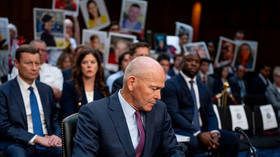Polls are open in the United Kingdom for the country’s first parliamentary election in almost five years.
Here’s what to know:
- How does the process work?: Voters will elect all 650 members of the House of Commons, one for each constituency. The party that commands a majority, either alone or with another party’s support, forms the next government and its leader will become prime minister.
- Who are the leading candidates?: Prime Minister Rishi Sunak is leading his Conservative Party. His main opponent is Keir Starmer, who has led Labour since April 2020.
- When will we see results?: Polls close at 10:00 p.m. BST (5 p.m. EST), and exit polls should be released shortly after.
Here’s what to know:
- How does the process work?: Voters will elect all 650 members of the House of Commons, one for each constituency. The party that commands a majority, either alone or with another party’s support, forms the next government and its leader will become prime minister.
- Who are the leading candidates?: Prime Minister Rishi Sunak is leading his Conservative Party. His main opponent is Keir Starmer, who has led Labour since April 2020.
- When will we see results?: Polls close at 10:00 p.m. BST (5 p.m. EST), and exit polls should be released shortly after.
Scottish National Party leader John Swinney voted as his party fights to hold off a wave of support from the rival Labour Party.
Swinney, who became the SNP’s third leader in just over a year in May, has tried to bring stability to a party in turmoil.
Scotland’s long-serving First Minister Nicola Sturgeon abruptly stepped down last year during a campaign finance investigation that eventually led to criminal charges against her husband, who was the party’s chief executive.
Swinney joined the party at 15 years old, and previously led the party from 2000 to 2004.
Swinney has said that if his party wins a majority of seats in Scotland he will try to open Scottish independence negotiations with the London-based U.K. government. He wants to rejoin the European Union and the European single market.
Swinney walked to the polls in Burrelton Village Hall, Perthshire, with his 13-year-old son Matthew.
Downing Street’s resident cat remains at Number 10, waiting to welcome the winner of the British General Election. After more than a decade as ‘Chief Mouser to the Cabinet Office’, Larry the cat’s tenure has endured longer than most recent British Prime Ministers.
Members of the House of Lords wait for the start of the State Opening of Parliament at the Houses of Parliament, in London, Nov. 7, 2023. (Leon Neal/Pool Photo via AP, File)
The UK elections have a distinct vocabulary that draws on traditions of parliamentary democracy as well as modern political slogans and spin.
The Associated Press broke down some key words and phrases, such as:
- Coalition Goverment — A rarity in the United Kingdom, a coalition government is one in which two or more political parties divide up ministerial posts, compromise on policies and agree to govern in concert.
- Marginal Seat — Constituencies won by a small margin and thus more likely to switch hands in an election. The opposite is a safe seat.
- Tactical Voting — The practice of voters backing a party they wouldn’t usually support in order to defeat another candidate.
▶ Read the AP’s glossary of UK election terms.
A woman walks into polling station to vote near Richmond, North Yorkshire, England, Thursday, July 4, 2024. (AP Photo/Scott Heppell )
People queue at a polling station in London, Thursday, July 4, 2024. (AP Photo/Vadim Ghirda)
A PETA activist , People for the Ethical Treatment of Animals, dressed as a bear holds a poster in front of a polling station in London, Thursday, July 4, 2024. (AP Photo/Vadim Ghirda)
A man walks his dog, past a polling station at the Forum Theatre in Northallerton, North Yorkshire, England, Thursday, July 4, 2024. (AP Photo/Scott Heppell )
A man walks in to a polling station to vote in the general election in London, Thursday, July 4, 2024. (AP Photo/David Cliff)
A woman takes out stickers to prepare a polling station early morning in London, Thursday, July 4, 2024. (AP Photo/Vadim Ghirda)
A woman walks into polling station to vote near Richmond, North Yorkshire, England, Thursday, July 4, 2024. (AP Photo/Scott Heppell )
A woman walks into polling station to vote near Richmond, North Yorkshire, England, Thursday, July 4, 2024. (AP Photo/Scott Heppell )
People queue at a polling station in London, Thursday, July 4, 2024. (AP Photo/Vadim Ghirda)
People queue at a polling station in London, Thursday, July 4, 2024. (AP Photo/Vadim Ghirda)
A PETA activist , People for the Ethical Treatment of Animals, dressed as a bear holds a poster in front of a polling station in London, Thursday, July 4, 2024. (AP Photo/Vadim Ghirda)
A PETA activist , People for the Ethical Treatment of Animals, dressed as a bear holds a poster in front of a polling station in London, Thursday, July 4, 2024. (AP Photo/Vadim Ghirda)
A man walks his dog, past a polling station at the Forum Theatre in Northallerton, North Yorkshire, England, Thursday, July 4, 2024. (AP Photo/Scott Heppell )
A man walks his dog, past a polling station at the Forum Theatre in Northallerton, North Yorkshire, England, Thursday, July 4, 2024. (AP Photo/Scott Heppell )
A man walks in to a polling station to vote in the general election in London, Thursday, July 4, 2024. (AP Photo/David Cliff)
A man walks in to a polling station to vote in the general election in London, Thursday, July 4, 2024. (AP Photo/David Cliff)
A woman takes out stickers to prepare a polling station early morning in London, Thursday, July 4, 2024. (AP Photo/Vadim Ghirda)
A woman takes out stickers to prepare a polling station early morning in London, Thursday, July 4, 2024. (AP Photo/Vadim Ghirda)
FILE - Britain’s Prime Minister Rishi Sunak takes part in the BBC’s Prime Ministerial Debate, in Nottingham, England, Wednesday June 26, 2024. (Phil Noble/Pool via AP, File)
The Conservatives have faced one challenge after another since they took power in 2010.
First, there was the fallout from the global financial crisis, which swelled Britain’s debt and caused the Tories to impose years of austerity to balance the budget. They then led Britain out of the European Union, battled one of the deadliest COVID-19 outbreaks in western Europe, and saw inflation soar after Russia invaded Ukraine.
Regardless of the circumstances, many voters blame the Conservatives for the litany of problems facing Britain, from sewage spills and unreliable train service to the cost-of-living crisis, crime and the influx of migrants crossing the English Channel on inflatable boats.
▶ Read more about how the election works.
Britain’s Prime Minister Rishi Sunak and his wife Akshata Murty walk to a polling station to vote near Richmond, North Yorkshire, England, Thursday, July 4, 2024. (AP Photo/Scott Heppell )
Prime Minister Rishi Sunak cast his ballot Thursday in a national election that will determine if he remains in office.
Sunak, who tried to bring stability to a Conservative Party in chaos when he was picked as leader in October 2022, spent the past six weeks trying to persuade voters across the U.K. to give his party another term after 14 years in power.
Pollsters and politicians widely expect the Labour Party to win for the first time since 2005.
Sunak’s campaign got off to a soggy start when he called the snap election in a downpour outside 10 Downing Street in May.
He had been expected to wait until the fall, when expected improvements in the economy would give him a better chance.
Sunak voted shortly after polls opened in his constituency in Yorkshire in northern England.
FILE - Britain’s Prime Minister Rishi Sunak speaks to the media, as heavy rain falls, outside 10 Downing Street in London Wednesday, May 22, 2024, as he announces that he is to call a General Election for July 4. (AP Photo/Kin Cheung, File)
Sunak surprised pundits and most of his own lawmakers six weeks ago when he set the election for July 4, at least three months earlier than expected.
While most observers thought the vote would take place in the fall, Sunak gambled on a summer election, hoping that positive economic news would help him persuade voters that Conservative policies were beginning to work.
The decision was so startling that it landed the Tories in hot water. Allegations have emerged that party members and police officers assigned to protect government officials had placed wagers on a summer election, suggesting they had inside information and damaging Sunak’s ability to claim that his party is more trustworthy than Labour.
Commentators had been speculating about the timing of the election for months because the parliamentary term was scheduled to end in mid-December. While each parliament is elected for up to five years, the prime minister can call an election whenever it is most advantageous politically.
▶ Read more about how the election works.
FILE - People walk to a polling station for the British general election in Westminster, London, Thursday, June 8, 2017. (AP Photo/Frank Augstein, File)
The economy: Britain has struggled with high inflation and slow economic growth, which have combined to make most people feel poorer.
Immigration: Thousands of asylum seekers and economic migrants have crossed the English Channel in flimsy inflatable boats in recent years, triggering criticism that the government has lost control of Britain’s borders.
Health care: Britain’s National Health Service, which provides free health care to everyone, is plagued with long waiting lists for everything from dental care to cancer treatment.
The environment: Sunak has backtracked on a series of environmental commitments, pushing back the deadline for ending the sale of gasoline- and diesel-powered passenger vehicles and authorizing new oil drilling in the North Sea.
▶ Read more about how the election works.
FILE - A woman holds her voting card as she arrives to vote in London in local elections, Thursday, May 2, 2024. (AP Photo/Kin Cheung, File)
People throughout the United Kingdom will elect all 650 members of the House of Commons, one for each local constituency. There are no primaries or run-offs, just a single round of voting today, July 4.
Britain uses a “first past the post” system of voting, which means that the candidate that finishes top in each constituency will be elected, even if they don’t get 50% of the vote. This has generally cemented the dominance of the two largest parties, Conservatives and Labour, because it is difficult for smaller parties to win seats unless they have concentrated support in particular areas.
The party that commands a majority in the Commons, either alone or with the support of another party, will form the next government and its leader will be prime minister.
That means the results will determine the political direction of the government, which has been led by the center-right Conservatives for the past 14 years. The center-left Labour Party is widely seen to be in the strongest position.
▶ Read more about how the election works.
British voters are picking a new government today, voting in a parliamentary election that is widely expected to bring the Labour Party to power against a gloomy backdrop of economic malaise, mounting distrust in institutions and a fraying social fabric.
A jaded electorate is delivering its verdict on Prime Minister Rishi Sunak’s Conservative Party, which has been in power since 2010.
The center-left Labour Party led by Keir Starmer has had a steady and significant lead in opinion polls for months, but its leaders have warned against taking the election result for granted, worried their supporters will stay home.
Disclaimer: The copyright of this article belongs to the original author. Reposting this article is solely for the purpose of information dissemination and does not constitute any investment advice. If there is any infringement, please contact us immediately. We will make corrections or deletions as necessary. Thank you.



